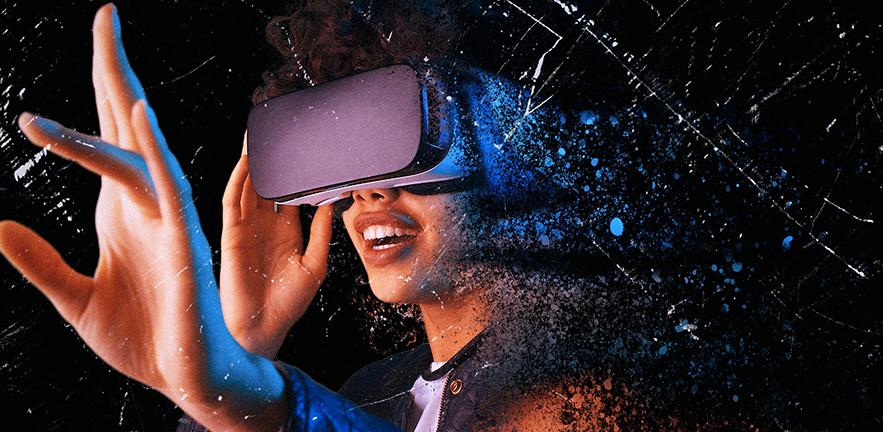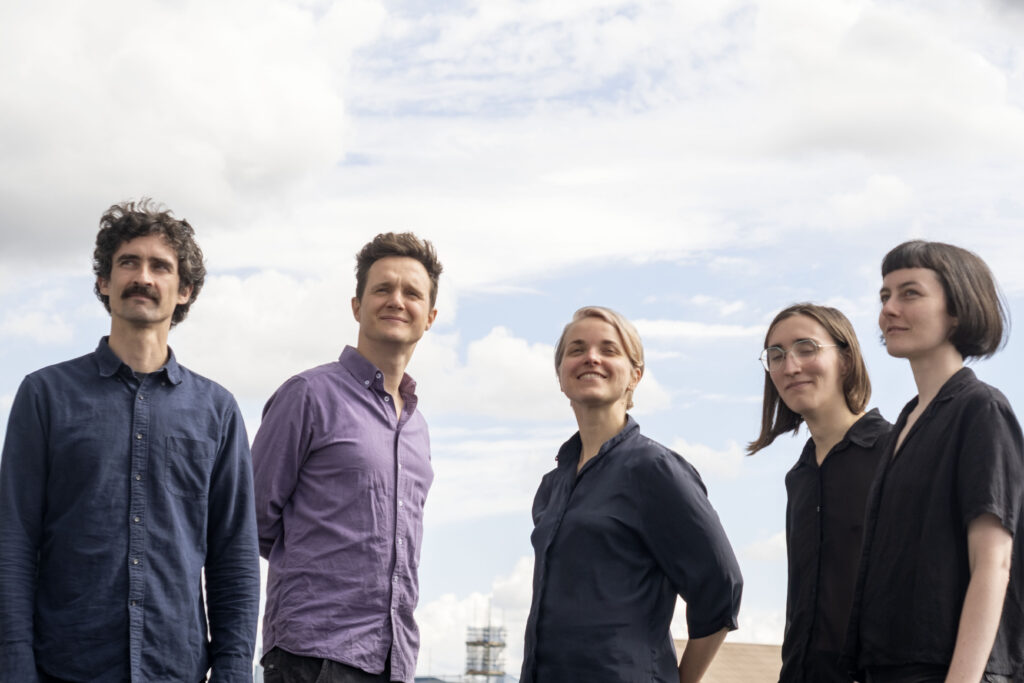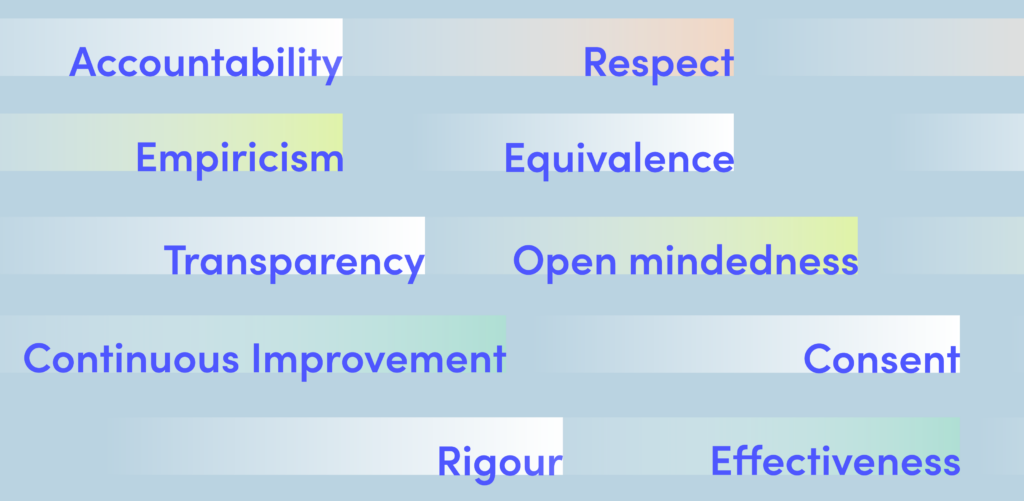Written by Szczepan Orlowski, co-founder of Animorph, a worker-owned software development co-operative. The co-operative focuses on the creation of next generation software aimed at enhancing human potential. Their aim is to deliver cutting-edge innovation whilst remaining responsible and caring.

Animorph
We pride ourselves on being a listening company; one that works with each client to develop cutting-edge technological solutions to unmet needs, with a special focus on Extended Reality (XR) software. Our self-initiated projects are also derived from evidence-based inquiry into the unmet needs of relevant stakeholders. For instance, investigating VR for mental health and pain-relief use cases alongside research into stress at UK workplaces costing UK employers up to £45 billion annually, led us to developing a VR prototype that has since received Innovate UK funding and is due for trialing with hospices and enterprises. This spirit goes in tandem with how we run the co-operative, collectively as worker-members. We grow relationships on trust, the fruits of which benefit wide-ranging stakeholder groups in the value chain, from the first step of inception to the final moment when the product is delivered. What we create and offer to the world comes back to us through the relationships built with external stakeholders and their clients, forging an ever-adapting virtuous cycle.
Enhancing human value
Since the co-operative’s inception in 2016, enhancing human potential has been at the heart of our mission. Last year, whilst reflecting on whether the pandemic has changed our priorities, we revisited our goals. While we focused on how we implement the motivations which drive us forward, as a co-operative we understood that Animorph remains committed to continuing its mission through the facilitation of:
• recovery from medical conditions,
• improvement of mental health and well-being,
• life-long learning.
We chose to be a co-operative because of how we relate to each other as workers; the value we want to deliver to society, and that we want to distribute the returns in an egalitarian spirit. We also wanted to contest the dominant view that there is only one way to set up and run a cutting-edge tech company.
We recently finalised a large community collaboration project, funded by the Special EU Programmes Body. Our first medical software is undergoing an official study with stroke survivors; the cyber security training platform we are building has successfully progressed through an Innovate UK accelerator, and we have just received two innovation awards to build XR prototypes for mental health use cases. Our achievements challenge the shareholder startup model, and we continue to push the envelope of co-operative value creation; and in parallel, the strategies of mainstream businesses have been shifting towards a similar mindset.
Value that’s always been here
Over a decade ago Michael Porter and Mark Kramer from Harvard Business School published “Creating Shared Value”, a paper citing a range of traditional enterprises, such as GE, Unilever, and even Walmart, which had been successfully following the approach of doing better by doing good.
Shared Value can be tapped into when corporations open themselves to societal needs, instead of seeing them as detrimental to corporate performance. A prerequisite is to transgress the traditional fixation on increasing share value. Porter and Kramer state that companies tap into Shared Value by rethinking three key areas: their products and services, value chain, and relationship to their local environment. The pursuit of Shared Value forges more resilient, efficient, and hence profitable, organisations.
This pursuit of Shared Value represents the most advanced form of capitalism to date. The authors mention the role of social entrepreneurs who are not locked into traditional thinking. Going against the ingrained perception that there is a trade-off between the shareholder and wider value establishes a strategic advantage. In Europe, such an approach is traditionally associated with stakeholder capitalism. The core concern for such a business is to simply ensure they prioritise people who are connected to what they make.
We have never drawn a line between us and the people in our value chain. Yes, in the worker co-operative we prioritise member-employees. However, workers do not operate in a vacuum: we benefit from the open-source ecosystem; we partner with researchers, and learn from end-users and other groups of people affected by our software. We recognise that we are a part of something larger and that it requires appropriate care. Funnelling created wealth out and into the shareholders’ pockets has not been an option for us.
If the value is not taken out of the system, where is it, and how should it be measured?
Capturing our social value
During our time on the Cambridge Social Ventures Incubator in 2018-2019, we created an outward-facing Social Value Policy to assess each of our engagements against our company values. Since then we published three annual Social Value Reports, the most recent one in December last year: https://animorph.coop/blog/social-value-report-2021-22/. The process enables us to transparently reflect on the impact of our work and more consciously select the types of projects we engage with next.
Each project is evaluated against ten Key Performance Indicators (KPIs); seven mission statements, plus three additional operational considerations. The policy allows for six consecutive quarters in a social value dip, i.e. underperforming on our KPIs. After 18 months of non-compliance, we have another two quarters to change the trajectory or, as per the “Self-Destruct 🔥🔥🔥” clause, the co-op must fold and distribute its assets to an organisation that meets our policy requirements. The clause is baked into our Articles of Association.
We have not yet called an existing engagement into question due to the outcomes of a KPI review. So far, we have been naturally coming together with people and organisations that are purpose-driven. Focusing on shared values enables us to better understand both the immediate and long-term needs of our stakeholders. Until last year, however, we did not explicitly lay out the ethos we, the workers, are accountable to in our daily practice.
Structuring the variety of values
Last year we understood that we should codify the way we relate to each other within Animorph. We drafted a set of guiding principles for working together, in relation to the mission of the co-op. Such a document is particularly informative for newcomers, but the long-standing members can also benefit from having such blueprints on hand. After all, these principles are meant to be practiced.
We wrote down a set of ten attitudes and behaviours that members and collaborators of Animorph should embody or aspire to embody. These are beneficial to ourselves, as individuals, and to the co-operative. We shaped and agreed them together, and so found our common understanding about what it takes to run our business successfully. Even in a small company like ours each person has a unique perspective. This variety can lead to differences in opinions and the codified ethos helps to steer the dialogue. The principles form a common denominator we refer to and assess in our individual performance reviews.
We believe that converging the external and internal-facing approaches will enable us to more effectively pursue our mission with professional excellence.
Unlocking the value of the unknown
The values we share with our clients, partners, and each other at Animorph help us navigate the unmet needs of our stakeholders. These processes are like lighthouses protecting us from losing our way and emboldening us to venture into the unknown. Animorph develops immersive software, sensitive to the context we interface with. This reciprocal way of doing business holds a powerful potential for meaningful innovation. As members and sole owners of our company we are not bound to perpetuate the status quo. We are free to imagine novel solutions and collaborate with stakeholders to maximise the positive impact.
Technologies such as Mixed Reality (MR) and Augmented Reality (AR) have the ability to seamlessly connect people with the digital realm. There are myriad reasonable concerns about what kind of future we can expect if the tech giants, most of which are in fact ad-tech businesses, place AR glasses on our noses and smart contact lenses in our eyes. We are confident that there are not only better business models, like Shared Value, but also more meaningful ways of developing wearable solutions, bringing lasting benefit to the end-users and other stakeholders. And all this can be done in a spirit of joyful exploration and kind mutual support throughout the process. This way we are gradually ushering the next generation of computing that people can trust.




Leave a Reply